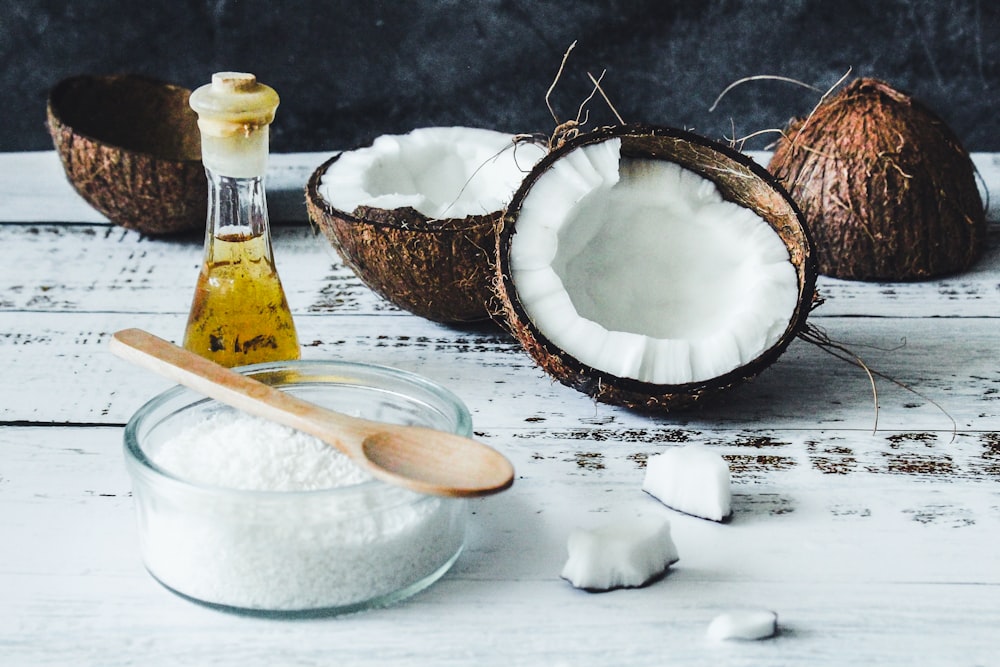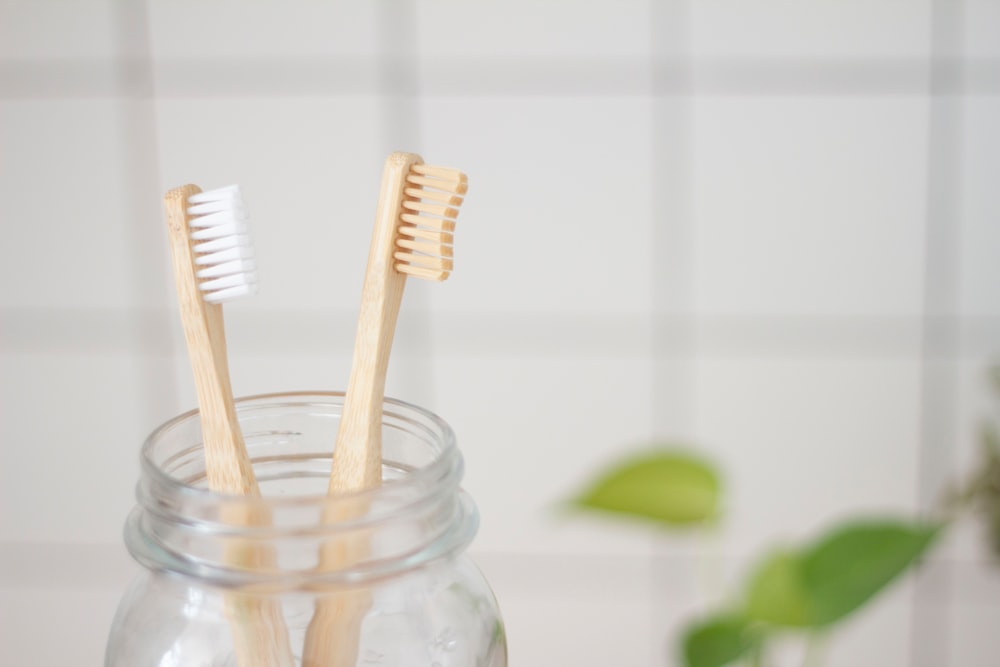
Although visiting the dentist every 6 months is crucial for your oral health, there are also many habits and practices you can do from home to improve your oral hygiene.
It goes without saying how important oral health is for you and your children. Tooth decay, gum disease, cavities, throat infections, bad breath, bacterial infections and other health problems are just some of the risks of poor oral hygiene.
Getting regular teeth cleanings at the dentist is crucial because a professional teeth cleaning is the only way to properly clean your teeth and gums. Brushing and flossing every day isn’t enough without also getting professional teeth cleanings at your dental office. However, there are certain oral hygiene habits you can master at home that will help you maintain great oral health in between visits to your dentist. Below are 6 ways to maintain a great oral hygiene:
1. Salt Water Gargle
Every few days, take a minute to do a salt water gargle. Gargling with salt water is a good practice to help prevent oral diseases. The salt water gargle is an antibacterial remedy and an anti-inflammatory remedy. Since bacteria takes up residence in your throat, a great way to flush out that bacteria is by gargling with salt water.
To prepare your salt water gargle mixture, simply add a teaspoon or two of salt to a cup of warm water, stir the mixture, take a sip, and gargle rigorously. Salt water also helps neutralize the acids in the throat produced by the invading bacteria, and helps maintain a healthy pH balance in your mouth. A normal pH balance also helps the natural bacteria in your throat and mouth to thrive and prevents unwanted bacteria from growing inside of your mouth. The fluoride in salt water prevents loss of minerals from the tooth enamel and helps strengthen it. Gargling with salt water also helps dissolve plaque buildup on your teeth, heal canker sores and heal a red, sore throat.

2. Oil Pulling
Oil pulling involves swishing coconut oil around the mouth for 15 – 20 minutes, using it like a mouthwash, as a natural and effective antibacterial remedy.
Oil pulling can easily be done from home. Simply place a tablespoon of coconut oil in your mouth, then swish it around for 15–20 minutes. This remedy helps rid your mouth of harmful bacteria and dissolves food debris. The bacteria in your mouth creates a film of plaque on your teeth, and plaque can build up and become a real problem if it gets out of hand. When you do oil pulling and swish the oil around your mouth, the bacteria get swept away and dissolve in the liquid oil. This will help dissolve plaque, bacteria, and prevent bad breath.
3. Increase Your Calcium and Vitamin D Intake
Do you consume enough foods rich in calcium and vitamin D? Studies indicate that if you lack these nutrients, your body will end up getting the calcium stores in your bones and teeth. As a result, you’re potentially at higher risk for osteoporosis and tooth decay.
One of the most common oral health mistakes out there is not getting your daily recommended intake of calcium and vitamin D, which is important for tooth health.
Vitamin D is the vitamin that helps your body absorb calcium. Speak with your doctor about taking calcium or vitamin D supplements, especially if you are lactose intolerant or you don’t get much sunlight.

4. Brush Your Tongue – Not Just Your Teeth
You already know how important it is to brush your teeth daily, but do you brush your tongue? Buy a toothbrush that has a tongue scraper on it, and use that to scrape bacteria off of your tongue every time you brush your teeth.
Tongue scraping is an effective oral hygiene practice that removes bacteria, food debris, toxins and dead skin from the surface of the tongue. This helps prevent bad breath, throat infections, and gum disease. It’s also important that when you brush your teeth, you brush the proper way. Don’t do the fast version – brush your teeth diligently and always brush after eating sugar.
5. Floss Every Day
Flossing is the best way to remove plaque between the teeth, which is where your brush can’t reach. Plaque that isn’t removed by flossing can build up, harden, turn to tartar and cause major oral health problems. It leads to tooth decay and gum disease. Flossing takes extra time, which is why many people skip this step. However, flossing is a crucial step that can’t be skipped.
6. Avoid Sugary Foods Whenever Possible
Tooth decay is one of the most common diseases of both children and adults, which is frustrating since it’s preventable. Eating less sugary foods is a great way to prevent this disease. Sugars are agents of oral bacteria, which release acids that attack the teeth, causing tooth decay. That’s why your Dentist always tells you that eating sugary foods will cause cavities. The less sugar you eat, the healthier your teeth will be. Never have a sugary snack in between meals. If you must have a sugary treat, eat it during mealtime so that the other foods can neutralize the acids of the sugars. If you snack in between meals, make sure it’s a healthy snack that does not contain sugar.
If you take your oral health seriously (which you should) consider taking a DNA test from CircleDNA to find out if you are genetically prone to oral health issues such as tooth decay. This way, you can be sure to keep a better eye out for possible oral health conditions.






